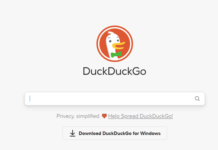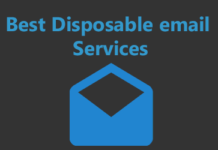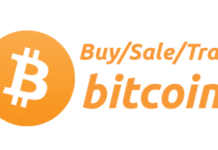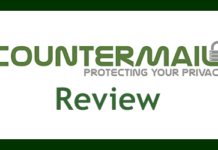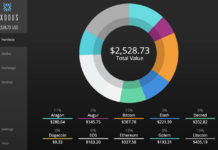If your last search was anywhere near the terms “Offshore anonymous hosting company”, you’ve landed exactly where you should’ve. This Offshore Racks review is exactly about that.
As the name already suggests, OffShore racks is definitely offshore and it mentions “anonymous hosting” in its Title as well validating its position as one of the companies which deserves a review and a glance in the least.
Note that we’ll evaluate the company’s server locations, anonymity, speed (tested from three different perspectives)¸payment methods, support, AUP (Acceptable use Policy) among some other aspects to get you a crystal-clear idea of the company’s worth.
Offshore Racks Quick Overview
Before diving deeper into this Offshore Racks review, here’s a brief glance of the company and what it offers:
- Primary URL: https://www.offshoreracks.com/
- Servers in: Panama, Netherlands
- Payment methods: Cryptocurrencies + Fiats
- Cheapest Plan: $2.95/month.
- Servers: Shared Hosting, VPS Hosting, Dedicated Hosting.
- DMCA Compliant: Yes
- Content not allowed: Listed in the AUP section.
- Uptime: 99.9%.
Location for Host Your Server
Obviously considering how it markets itself as an “Offshore” hosting company, the location it’s based off is of prime importance, isn’t it?
As a company it’s based out of Panama, even its owners are Panamanian as is mentioned on the homepage hence letting it offer more liberty and anonymity than a native company.
It also offers servers from Netherlands; Panama and Netherlands are probably the least digitally-censored countries on the planet, the same is backed by an article on “Nomad Capitalist” as well which places Netherlands amongst the top 5 countries in the world for offshore needs.
Anonymity
As already mentioned; the company website has “anonymous” in its Title, although the claim is now somewhat doubtful after going through its T&C.
It doesn’t seem to require any verified identity proof or document for users to Signup or purchase, neither is any such requirement mentioned in their Terms and Conditions.
However it does mention “logging of IP address” which is a tad bit unacceptable for me; although it also states that this information is only used for server development and troubleshooting.
It also has a clause regarding information-sharing with third parties and states that no other third-party gets access to any of the logged data.
It does however accept Cryptocurrencies (in addition to fiat) payment methods making sure that the payments can be traced back to the individual user making it.
Bottomline, it does have some loopholes in its anonymity policy and isn’t as anonymous as some other offshore anonymous hosting companies such as BulletProofWeb maybe; although it still may be acceptable for most.
Page Load-Time test
Doesn’t matter what your site is about, whom you’re targeting, or even what its purpose is, a “website” is only functional or used when users visit the site; and no user likes to visit a slow site; do they?
And it’s not only about the users, website speed is even a ranking factor considered by Google (and they’ve been doing this since 2010)!
So we test the speed on multiple fronts; the first being its page load-time test which tests how fast or slow a specific page on the server loads. For this purpose we use the company’s homepage.
(Verification that the company’s homepage is indeed hosted on the same servers as provided by it to its customers- https://intodns.com/offshoreracks.com)
Note that this test largely depends on the individual page’s content, the heavier or larger in size the page will be (in terms of images, content, background scripts etc). the longer it’ll need to load.
Although it still gets us an idea of the average speed-performance provided by the company.
After testing the website https://www.offshoreracks.com from various locations, we found that it was the fastest for North America with 1.49ms load-time (verify); while slowest for Australia-Sydney with over 6 seconds of load-time!
![]()
So it’s safe to say that the server’s speed is acceptable for most countries, requiring less than 2 seconds of load-time, unless ofcourse your visitors are from Japan or Australia.
Server Response Time Test (SRT)
The above test did reveal an average load-time for the page; but as already mentioned it’s largely dominated by the individual page’s content hence we need something more universal to establish a speed-record for the site, don’t we?
That’s where the Server Response Time test comes in, it’s the time required by the server to respond to the browser’s request to load up the site, or in other words the page load-time test shows the time required by the server to load up the entire page, with all its elements; however the SRT only records the first responses.
Obviously the faster the server responds, the faster the site loads or vice-versa; hence it can be said that the SRT does effect the page load-time of the site.
Here are the SRT results for the company (verify):
![]()
As is evident, the SRT seems fastest for East US with just 82 milliseconds being required for the response, the average SRT for other locations is around 300ms which is still acceptable (although not impressive).
SRT When Traffic Spikes
This one’s simple; we measured the load-time and the SRT of the site but when the site was stable; who knows maybe I was the only visitor there?
What happens when there’s a traffic spike for the site? Will it still perform the same or start slacking? That’s what this section on this Offshore Racks review deals with.
I’ll send around 25 virtual users to the site; these are bots which act like real humans demanding server resources and then monitor the server’s performance under pressure.
Here are the test-results (and I must say I’m amazed, so much so that I ran the test TWICE just to confirm that the results were true and weren’t glitched).
![]()
As the screenshot above illustrates, the SRT (blue line) remained almost constant throughout the test (3 minutes). (Verify here)
Although what amazed me was the fact that the highest SRT required was just 17ms! And for the most part it needed single-digit SRTs averaging 3ms!
Bottomline, traffic-spike isn’t something that intimidates Offshore Rack; at all.
Acceptable Use Policy (AUP)
This is something that generally is one of the prime reasons why users go with offshore anonymous hosting companies; this policy states what content is or isn’t allowed on the servers.
Unfortunately; OffShore Racks isn’t big on liberties and clearly states that it can only be used for “lawful purposes”; and that’s not all. Unlike other companies which only take the laws of their server-countries into account; Offshore Racks also complies to all U.S Federal, State or City laws.
Apart from that it specifically bans:
- Child Porn
- IRC
- Pirated content.
- Warez etc.
Bottomline, it’s not the company I’d go with if it’s U.S laws I’m trying to escape.
Support
The company does officially have Live Chat, E-mail as well as a Phone number which can be used to reach them.
However in my personal experience, I kept the site running for over 7 hours and not once did the Live-chat come online.
So maybe my timing was way off; or the live-chat isn’t as live as we’d hope.
Pricing Plans and Packages
One of the final sections of this Offshore Racks should deal with what products are offered by the company, shouldn’t it?
It’s armed with Shared, VPS as well as Dedicated servers. Shared servers start as low as USD $2.95 with the highest price-tag being USD $19.60/month.
VPS servers start as low as USD $9.00/month and may go as high as USD $63.00/month. Dedicated servers on the other hand have a starting price of USD $299.00/month and the only other available plan is for USD $399.00/month.
Although note that there’s a limit on the bandwidth usage for each account; if and when said limit is exceeded, users are charged at an additional USD $1.00/gigabyte, non-prorated.
Also, for some reason most links on the site don’t work and lead nowhere, hence you’d either have to click on a lot of wrong links, or use Google + keyword (such as Offshore Rack Dedicated Server) to reach the product links.
Payment Methods
Payment methods contribute towards the anonymity provided by any hosting company and the same holds true for this Offshore Racks review as well.
Fiat methods are extremely transparent and traceable, they lead interested parties to your doorstep; fortunately Offshore Racks does support Bitcoin as a payment mode.
In addition to Bitcoin, you can also pay using:
- WebMoney
- Paypal
- Credit/Debit Cards
- Payza
- Perfect money
- Western Union
- And Swift.
Final Words:
So that’s about it folks as far as this Offshore Racks review is concerned. We did try to encompass all the features and aspects that you’d want to know about the company before making a decision.
Although in my personal opinion, there definitely are better options; which provide a lot more and even absolute anonymity and liberty with content (such as Bulletproofweb, WebCare360 etc).
But hey I’m no Judge, am I? Why don’t you let me know your two cents on this Offshore Racks review as well as the company in general in the comments? It’s all yours.
